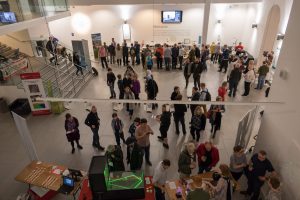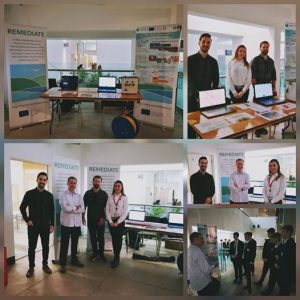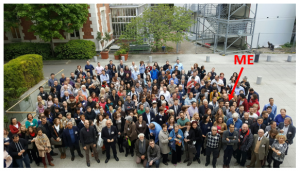Tatiana Cocerva and a number of the other Remediate ESRs went to ACS2017 this summer. Enjoy her great summary of the events they all enjoyed!
Working hard setting up experiments, getting the expected results, and publishing your work in great journals are all key goals for a researcher; communicating your research at a conference is also a professionally valuable experience.
This year, REMEDIATE participants had the opportunity to attend the AquaConSoil Conference that took place in Lyon, France on the 26th-30th June 2017. This event brought together students, scientists, industry professionals, and policy makers from all over the world. Presentations covered the areas of sustainable use and management of soil, sediment, and water resources.
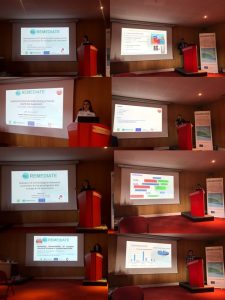
Sabrina, Tatiana, Stacie, Panagiotis, Yi, Morteza, Diogo, and Neha (REMEDIATE Early Stage Researchers) presented their research to a wide audience in a special session “Improved decision making for contaminated land site investigation and risk assessment”, chaired by Professor Frederic Coulon (supervisor at Cranfield University). It was a very interesting session, after which we received valuable feedback and appreciation of our work. Ricardo, Coren, and Peter chose to disseminate their work in a poster session, where they actively engaged with other conference attendees, and exchanged ideas with many of them.
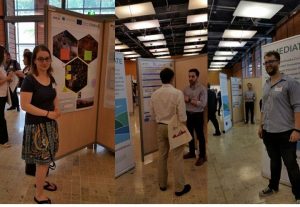
Being a researcher should be challenging and fun
Social events and informal meetings are the best way to create new collaborations and build new friendships. What can be more rewarding than having dinner with your colleagues after a full day of listening to interesting presentations and meeting nice people? The REMEDIATE team added researchers and new friends from Italy, Germany, Netherlands, and Chile to its network.

The conference dinner was organised in a friendly atmosphere where REMEDIATE supervisors and researchers socialised with different conference attendees in a relaxed, informal environment. Tatiana engaged in interesting discussions with the team from BRGM (French geological survey), and found that they shared a similar network and friends in France. What a happy coincidence! After dinner, a DJ boosted everyone’s energy and we all remembered that professional people can combine research and fun.
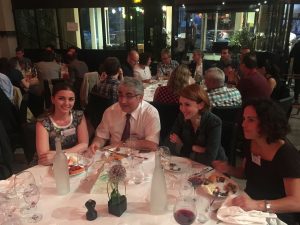
We are very grateful to all the organisers for this amazing, memorable conference. This was a great experience for all of us and we were inspired, challenged, and more motivated in our work. We look forward to attending the next conference with the same positive mood!

